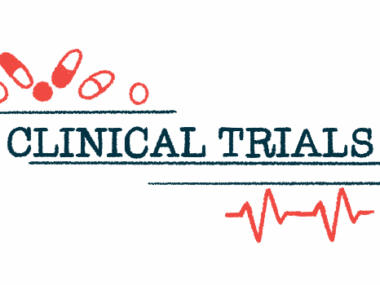Elder woman found to have acquired angiodema after tongue swelling
Angioedema and allergic reactions result in 1 million ER visits per year
Written by |

A 61-year-old woman in the U.S. was diagnosed with acquired angioedema and an underlying lymphoproliferative disorder after she sought treatment in an emergency department for sudden tongue swelling and difficulties in talking and swallowing, according to a case study.
Lymphoproliferative disorders are characterized by the uncontrolled production of lymphocytes, or white blood cells. These cells are key players in the functioning of the immune system.
The researchers noted that angioedema or allergic reactions, both of which can result in life-threatening symptoms, are associated with about 1 million visits to emergency departments each year.
“Most of these patients are diagnosed with allergic reactions. Therefore, it is important to investigate causes of angioedema because it can be associated with various conditions including drug induced, acquired, hereditary or idiopathic [cases],” the team wrote.
The woman’s case was described in the study, “Angioedema in a Patient with Underlying Lymphoproliferative Disorder,” which was published as a clinical communication to the editor in The American Journal of Medicine.
Acquired angioedema found in woman with lymphoproliferative disorder
Angioedema is characterized by swelling in the deeper layers of the skin, but this symptom also may occur in the membranes that line the respiratory and gastrointestinal systems. Such swelling can lead to breathing difficulties, vomiting, and abdominal pain. It is caused by high levels of a molecule called bradykinin, which causes fluid to leak from blood vessels into nearby tissues.
In some patients, angioedema can occur as part of an allergic reaction — called acute allergic angioedema — or be caused by genetic mutations, in which case it’s referred to as hereditary angioedema (HAE).
HAE is commonly caused by mutations in the SERPING1 gene, which provides instructions for making a protein called C1-inhibitor, known as C1-INH. This protein prevents a series of events resulting in inflammation and blood clotting. When C1-INH levels or activity decrease, bradykinin production increases, which can trigger a swelling attack.
In rare cases, a person can have low levels of C1-INH for other reasons other than genetic mutations. When angioedema arises in such cases, it’s called acquired angioedema.
Acquired C1-INH deficiency typically occurs in elder patients, who are in their 40s or older, and who have underlying conditions like cancer, monoclonal gammopathy, and autoimmune disorders. Monoclonal gammopathy is a blood disorder in which abnormal proteins made in the bone marrow are found in the blood.
Here, researchers described the case of an older who was treated at an emergency department for sudden tongue swelling, difficulty talking, and problems swallowing. She was admitted into the intensive care unit (ICU) and received epinephrine, a medication used to treat life-threatening allergic reactions.
Swelling resolved within a few hours after the patient was treated with an antihistamine — used to ease allergy symptoms — and anti-inflammatory steroids. The patient did not require intubation.
Blood tests revealed she had low levels of C1-INH (13 mg/dL; reference range: 21–39 mg/dL), but activity levels were normal (88%; reference range: 88% or more). She also had low levels of the complement proteins C1q and C4, which ultimately allowed doctors to make the initial diagnosis of acquired angioedema.
“Acquired C1-INH deficiency can be distinguished from inherited deficiency by measurement of C1q and C4 complement levels. Patients with the hereditary disease have normal levels of C1q, while those with the acquired form have low levels,” the researchers wrote.
It is important to investigate causes of angioedema because it can be associated with various conditions including drug induced, acquired, hereditary or idiopathic [cases].
A comprehensive analysis of metabolic markers and complete blood count for this patient were within normal limits. CT scans of the chest and abdomen also were normal.
A blood coagulation screen test indicated a possible deficiency in blood clotting. The presence of an abnormal protein in the blood, and a bone marrow examination showing 20% of abnormal plasma cells confirmed the diagnosis of a lymphoproliferative disorder.
Such disorders are characterized by the uncontrolled production of lymphocytes, and may range from monoclonal gammopathy of undetermined significance (MGUS) to non-Hodgkin lymphoma in patients with acquired angioedema.
According to researchers, treatments used to treat or prevent acute attacks due to C1-INH deficiency also may be applicable to acquired C1-INH deficiency.
“Although our patient responded to antihistamine and steroid therapy, a common therapy is treatment with plasma-derived or recombinant C1-INH, ” the researchers wrote. Such treatments may include, for example, Berinert or Cinryze.



